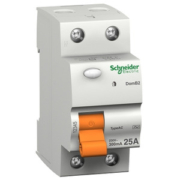What’s an RCD?
In New Zealand, Residual Current Devices (RCDs) play a crucial role in ensuring electrical safety. RCDs are protective devices designed to quickly disconnect the power supply when they detect a leakage of electric current from a circuit. They can be installed on switchboards or socket outlets. Here’s why RCDs are important for electrical safety in NZ:
Protection Against Electric Shocks
RCDs are a vital safety measure to protect against electric shocks. They continuously monitor the electrical current flowing through a circuit. If there is an imbalance, indicating a leakage of current (such as through a person), the RCD swiftly cuts off the power, preventing potentially severe electric shocks.
Reducing the Risk of Electrical Fires
Electrical fires can result from faults in wiring or appliances, leading to overheating. RCDs help mitigate this risk by swiftly disconnecting the power if they sense abnormal current flow. This rapid response significantly reduces the likelihood of electrical fires, safeguarding both property and lives.
Compliance with Regulations
In New Zealand, electrical installations are subject to strict regulations outlined in the Wiring Rules (AS/NZS 3000). These regulations mandate the use of RCDs in certain installations to enhance electrical safety. Compliance with these regulations ensures that switchboards and electrical systems meet the necessary safety standards.
Protection for Outdoor and Wet Areas
RCDs are particularly important in outdoor and wet areas where the risk of electric shock is heightened. They are commonly used in circuits supplying power to outdoor sockets, garden equipment, and areas with water sources. The sensitivity of RCDs to leakage currents means they are effective safeguards in these environments.
Enhanced Personal Safety
If you are using electrical appliances and equipment, RCDs provide an additional layer of safety. Whether in residential, commercial, or industrial settings, RCDs offer protection to those interacting with electrical devices, reducing the severity of potential injuries in the event of a fault.
Quick Response to Faults
Traditional circuit breakers primarily protect against overloads and short circuits. However, RCDs respond to very small imbalances in current, offering a faster and more comprehensive response to faults. This quick reaction time is crucial in preventing accidents and minimizing the impact of electrical faults.
Peace of Mind for Homeowners and Businesses
Installing RCDs on your switchboard instills confidence in the safety of electrical systems. Homeowners and businesses can enjoy peace of mind knowing that these devices are actively working to minimize the risks associated with electricity, creating a safer environment for occupants and property.
In summary…
RCDs are indispensable components of electrical safety in New Zealand. Their ability to detect and respond to current imbalances helps prevent electric shocks, reduce the risk of fires, and ensures compliance with safety standards. Whether in homes, workplaces, or outdoor spaces, the use of RCDs contributes significantly to creating a safer electrical environment.




